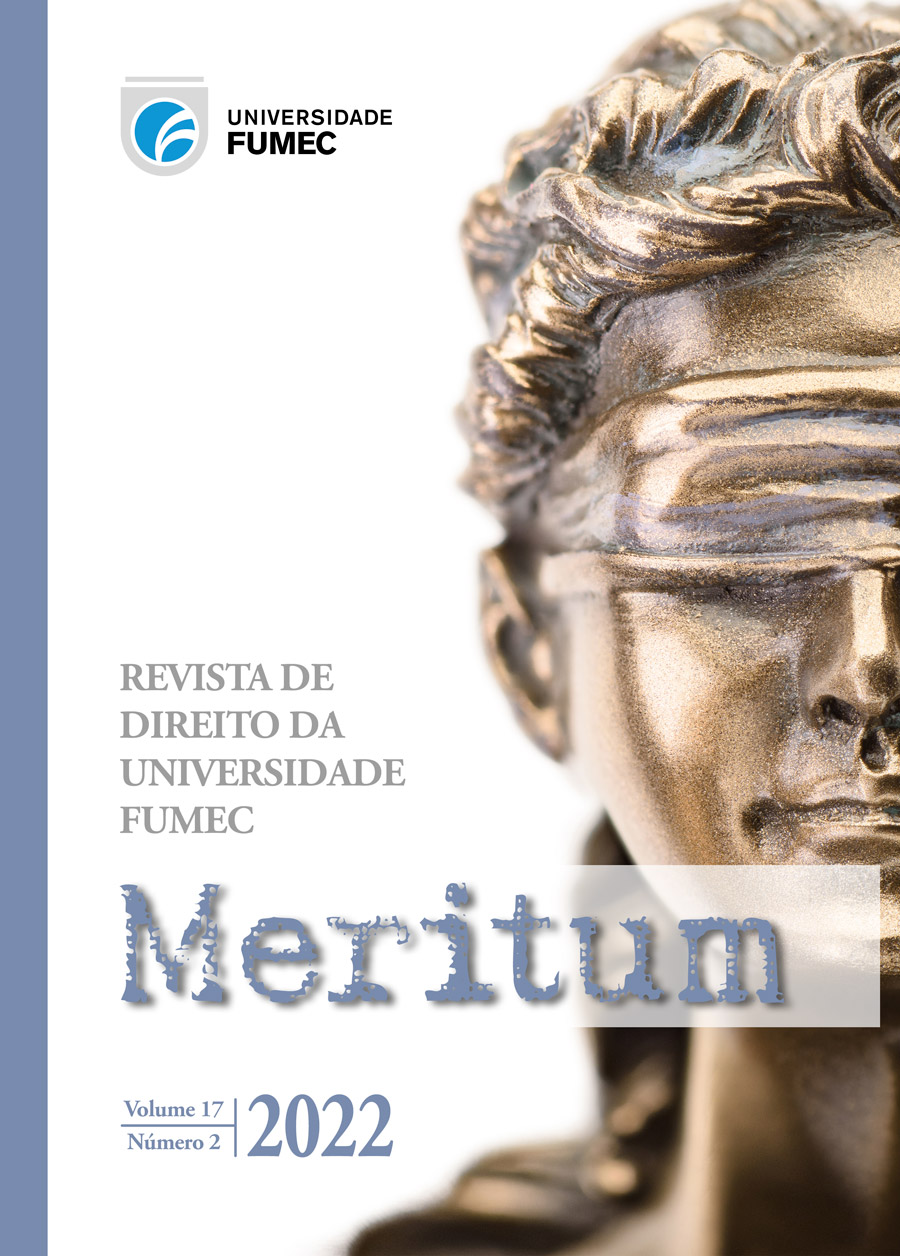THE STRUGGLE FOR LEGAL RECOGNITION
THE DISRUPTION OF THE NATIONAL SOLIDARITY ECONOMY POLICY
DOI:
https://doi.org/10.46560/meritum.v17i2.8698Abstract
The national solidarity economy policy was implemented in Brazil in 2003, after 12 years of important performance, the process of destructuring the solidarity economy sector began in 2015. The current moment seeks to reflect on the progress made in the implementation and recognition of public policies to vulnerable sectors of society. It investigates the social and political reasons and motives for the process of political disruption around this sector and the consequences for the uncertain political future of the Solidarity Economy. It starts from the theory of Struggle for Recognition by Axel Honneth (2003) by elucidating the three phases of recognition: love, law and solidarity. Thus, the above theory demonstrates the need for legal regulation as an indispensable way to advance in the struggle for the survival of the contradictions of the capitalist system. The research is based on a quantitative bibliographic survey, legislation and examples in order to elucidate the trajectory of the institutionalization of Solidarity Economy.
Downloads
Published
Issue
Section
License
Autores que publicam nesta revista concordam com os seguintes termos:
- Autores mantém os direitos autorais e concedem à revista o direito de primeira publicação, com o trabalho simultaneamente licenciado sob a Licença Creative Commons Attribution que permite o compartilhamento do trabalho com reconhecimento da autoria e publicação inicial nesta revista;
- Autores têm autorização para assumir contratos adicionais separadamente, para distribuição não-exclusiva da versão do trabalho publicada nesta revista (ex.: publicar em repositório institucional ou como capítulo de livro), com reconhecimento de autoria e publicação inicial nesta revista;
- Autores têm permissão e são estimulados a publicar e distribuir seu trabalho online (ex.: em repositórios institucionais ou na sua página pessoal) a qualquer ponto antes ou durante o processo editorial, já que isso pode gerar alterações produtivas, bem como aumentar o impacto e a citação do trabalho publicado (Veja O Efeito do Acesso Livre).






